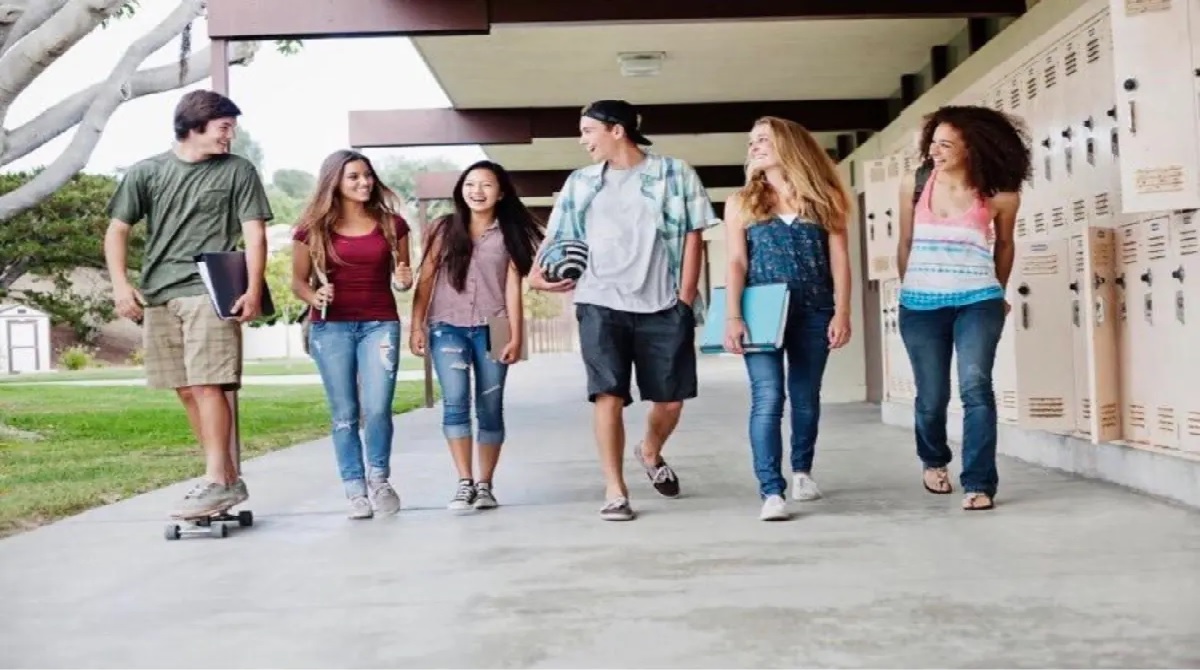Teenagers must develop independence and responsibility if they are to grow into successful and self-sufficient adults. Here are some of the reasons:
Independence allows teenagers to think for themselves, make decisions, and accept responsibility for their actions. This helps them become more self-sufficient, confident, and capable of dealing with new situation and difficulties on their own. Teenagers can develop important life skills such as time management, self-discipline, and problem-solving abilities by learning to be self-sufficient.
Responsibility
Responsibility is an important part of maturing as a person and growing up. It teaches teenagers to take responsibility for their actions and to consider the consequences of their choices. This teaches them empathy and respect for others, as well as the impact their actions can have on those around them.
Building Trust:
Building trust with parents, teachers, and other authority figures in a teenager’s life requires independence and responsibility. Teenagers who are self-sufficient and responsible are more likely to be given the freedom to make their own decisions and to be trusted with greater responsibility.
Success in Life:
Finally, developing independence and responsibility is critical for life success. The ability to be independent and take responsibility for one’s actions is critical in achieving goals and building meaningful connections with others, whether in school, the workplace, or personal relationships.
There are numerous things you can do to assist your child in developing independence:
Demonstrate your love and support for pre-teens and teenagers.
Strong, supportive relationships help teenagers feel safe and secure. Teenagers have more confidence to try new things and discover who they are and what they want to do with their lives when they feel safe and secure. It also makes it easier for them to recover from errors or challenges.
Read More: Importance of sleep among teenagers – About Pakistan
You can show your love and support by doing the following:
genuinely caring about your child’s interests, hobbies, and friends making time to listen when your child needs to talk giving your child space and privacy
Respect adolescent emotions and viewpoints.
Adolescents often experience intense and sometimes overwhelming emotions as they go through the physical, social, and emotional changes of adolescence. If you pay attention to your child’s emotions, you can help him or her learn to understand and manage these emotions on their own. This is an important step towards independence.
Exploring different points of view and ideas is one way for your child to figure out where they fit in the world. Your child’s opinions may differ from yours, but taking them seriously communicates that you value your child. And differing viewpoints can provide an opportunity to discuss how it is acceptable for people to hold opposing viewpoints.
Talking about your own thoughts and feelings calmly can help you and your child maintain open lines of communication and strengthen your relationship. It also exemplifies positive interpersonal interactions.
Establish clear and equitable family rules.
Clear family rules about behaviour, communication, and socialisation will help your child understand the boundaries and expectations. Rules keep your child safe as they experiment with new things. Similarly, rules can help you be consistent in how you treat your child when they test the limits of their independence.
It’s a good idea to keep track of your child’s progress with independence and adjust the rules as needed. You may need to negotiate rules and boundaries as your business grows.
Assist pre-teens and teenagers in developing independent decision-making abilities.
Making independent decisions is an important life skill. You can assist your child in developing and practising this skill by going through the following basic steps with them when they have a decision to make:
Learn about the various options. For example, your child may need to choose electives for Year 8 such as Italian, art, music, coding, and so on.
Discuss the advantages and disadvantages of various options. For example, your child enjoys music and art but wants to study IT at university.
To make the best decision, weigh the pros and cons. Is it better, for example, to relax by studying music or to develop skills for further study in coding?
Plan out what you’ll do if things don’t go as planned. For example, your child may be able to change their electives at the last minute.
Provide feedback to your child on how they handled the situation.
It’s especially important to use these steps when making big decisions that affect your child, such as school, further study, staying out late, and so on. If you can make those decisions with your child rather than for him or her, your child is more likely to follow through on whatever you’ve decided together.
You can also involve your child in family decisions, such as what to do during the next school vacation or whether to get a family pet. This conveys the message that you value your child’s education.
Allow pre-teens and teenagers to practise being independent and responsible.
Activities that provide your child with freedom and time away from you can help your child practise being independent. Youth groups, sporting teams or clubs, school musicals, volunteer activities, casual work, and other activities, for example, can assist or encourage your child to:
learn new skills and put them to the test
Move around the community on your own, take positive risks, foster a sense of belonging, and develop resilience.
These kinds of activities can also give your child the opportunity to take on more responsibility, such as being on time, playing a specific role in a team, leading a group, and so on.
Younger teenagers may believe they are ready to make their own decisions, but they often lack the skills to handle significant responsibility without your assistance. Explain to your younger child why younger and older children are assigned different amounts and types of responsibilities.
Constructive conflict resolution with independent pre-teens and teenagers
Young people are figuring out who they are and where they fit in the world. Your child will most likely want more control over socialising, behaviour, and appearance. As part of this process, your child may push boundaries and question authority figures, including you.
A positive approach to conflict resolution with teenagers can strengthen your relationship while also assisting your child in developing important independence skills.
Read more: Impact of Technology On Our Relations and Ways To Balance Screen Time – About Pakistan
Independence in pre-adolescents and teenagers with special needs
Reaching full independence may take a little longer for pre-teens and teenagers with special needs than for others.
It can be more difficult for children to achieve independence if they have spent many years being dependent on others, being cared for, and having decisions made for them. However, encouraging your child to gradually become more independent is beneficial to both of you. For example, you could gradually begin to share responsibility for managing medications with children who have chronic health conditions.
You, your child, and the health professionals who will be managing your child’s care will all be involved in determining when and how your child will begin to manage health decisions independently. Speak with a health professional if you have any concerns.
Conclusion
To summarize, teenagers must develop independence and responsibility in order to become successful, well-rounded adults. Parents and teachers can help teenagers develop self-reliance, maturity, and a sense of accountability by encouraging these characteristics in them.





















